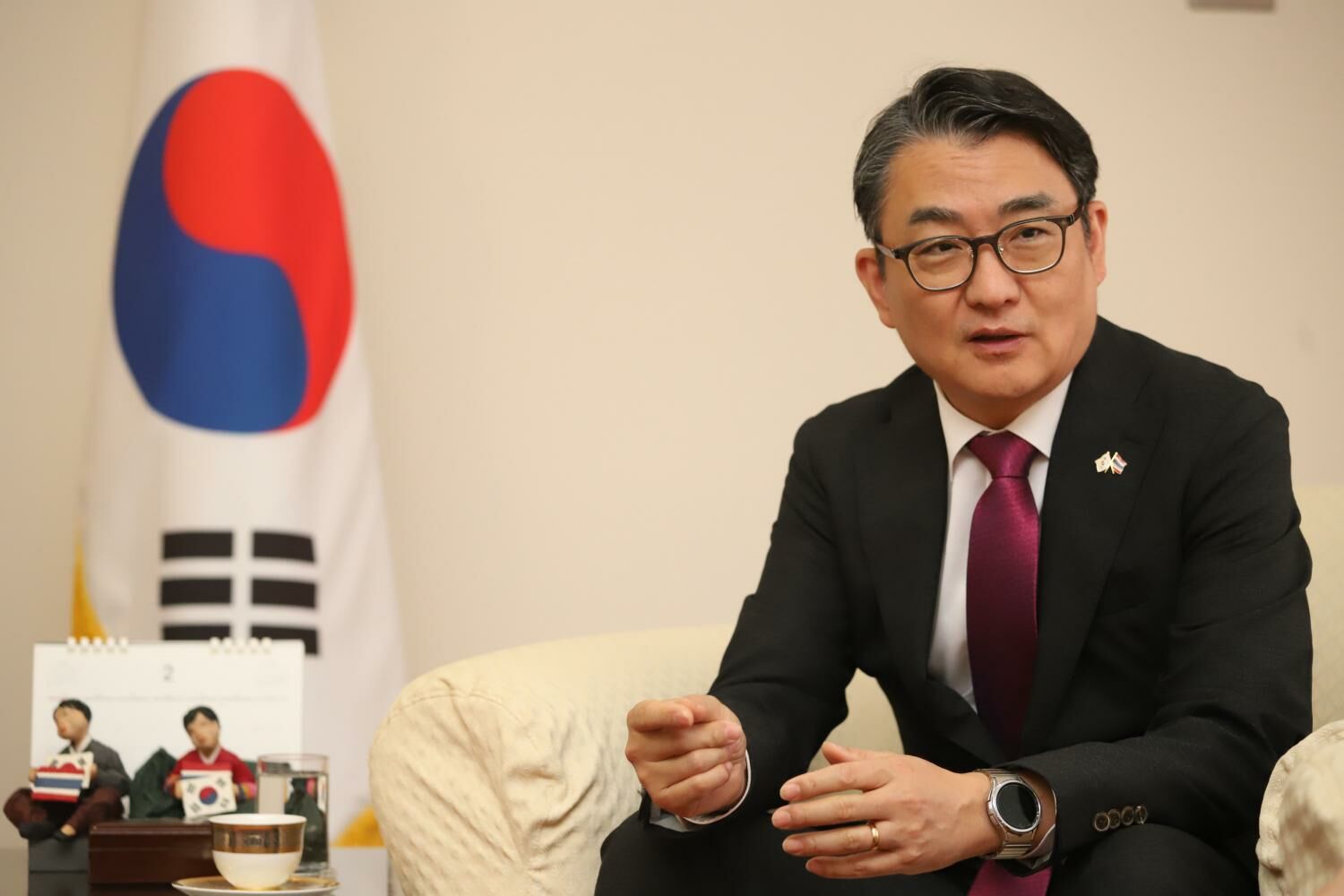South Korea reaffirms commitment to Thailand amidst immigration controversy

South Korean ambassador to Thailand, Park Yong Min, reaffirmed the country’s commitment to enhancing bilateral relations amidst the recent controversy involving the alleged mistreatment of Thai travellers by South Korean immigration officials. Speaking to the Bangkok Post at the South Korean embassy in Bangkok, Park expressed his ambition to further economic cooperation between the two nations during his tenure.
Thailand was among the first countries to support Korea during the Korean War in 1950, even before the formal establishment of diplomatic ties in 1958, Park stated. This act of solidarity has cultivated a deep-seated gratitude within Koreans. Last year marked the 65th anniversary of formal diplomatic relations between the two nations, a milestone celebrated with a summit held in September at the UN General Assembly.
South Korea will continue to support the Mekong sub-region’s security, environmental and economic development under the Republic of Korea-Mekong cooperation framework. This cooperation has flourished since its inception in 2011, notably elevated to a summit in 2019 and culminating in a strategic partnership in 2020.
The collaboration across the Mekong region has become more focused following the announcement of Seoul’s Indo-Pacific Strategy and the Korea-ASEAN Solidarity Initiative (KASI) in November 2022, reported Bangkok Post.
Park also shared South Korea’s plan to double its annual contribution to the Korean-Mekong Cooperation Fund from US$5 million in 2022 to US$10 million in 2027. Furthermore, South Korea intends to join the Mekong River Commission (MRC) as a development partner.
On the topic of soft power, the ambassador shared that South Korea’s success in promoting cultural arts was partly due to the government’s support of cultural content promotion policies in the 1990s. Government initiatives, including the establishment of a cultural industry department to nurture the industry, proved fundamental.
Startup ventures
Financial and tax assistance for startup ventures, particularly in the visual arts industry, played a significant role. The establishment of major cultural facilities, such as the National Museum of Modern and Contemporary Art, the National Theater of Korea, the National Gugak Center, and the Korean Academy of Film Arts, has also greatly contributed to the nation’s soft power development.
Park expressed confidence in the continued growth of Thai soft power policy, highlighting the country’s rich traditions. He looked forward to increased collaboration between South Korea and Thailand, with support from the South Korean embassy, the Korean Cultural Center, and the Korea Creative Agency Bangkok Center.
Addressing the #banKorea controversy, sparked by reports of mistreatment of Thai tourists by South Korean immigration officials, Park assured that both governments are actively working to resolve the issue. Measures include increasing the availability of Thai interpreters at major points of entry and improving cultural sensitivity training for officials.
Park also addressed concerns over illegal Thai workers in South Korea, stating that illegal stays distort the labour market and undermine the rule of law. While asserting that even illegal residents are entitled to protection under the law, Park emphasized the necessity to drastically reduce illegal stays, requiring collaborative efforts from both the Korean and Thai governments and their citizens.
Latest Thailand News
Follow The Thaiger on Google News:


























